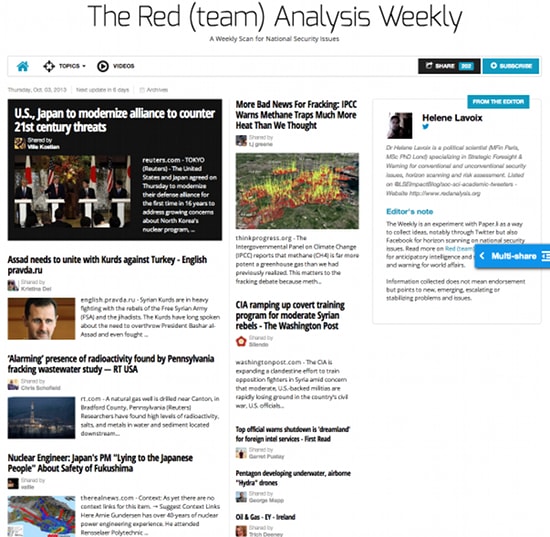Besides other issues, the agreement between the U.S. and Japan to modernize their security cooperation, implying among others a larger role for Japan, is most likely to have ripple effects, notably considering the tense situation with China and unhealed regional wounds stemming from World War II. Energy security then is very much to the fore, with renewed questions regarding the adverse environmental impact of fracking also having a strong potential for large and multiple impacts, without forgetting the impact of Fukushima’s nuclear tragedy.
Click on the image below to read on Paper.Li

Published by Dr Helene Lavoix (MSc PhD Lond)
Dr Helene Lavoix is President and Founder of The Red Team Analysis Society. She holds a doctorate in political studies and a MSc in international politics of Asia (distinction) from the School of Oriental and African Studies (SOAS), University of London, as well as a Master in finance (valedictorian, Grande École, France).
An expert in strategic foresight and early warning, especially for national and international security issues, she combines more than 25 years of experience in international relations and 15 years in strategic foresight and warning. Dr. Lavoix has lived and worked in five countries, conducted missions in 15 others, and trained high-level officers around the world, for example in Singapore and as part of European programs in Tunisia.
She teaches the methodology and practice of strategic foresight and early warning, working in prestigious institutions such as the RSIS in Singapore, SciencesPo-PSIA, or the ESFSI in Tunisia. She regularly publishes on geopolitical issues, uranium security, artificial intelligence, the international order, China’s rise and other international security topics.
Committed to the continuous improvement of foresight and warning methodologies, Dr. Lavoix combines academic expertise and field experience to anticipate the global challenges of tomorrow.
View more posts


